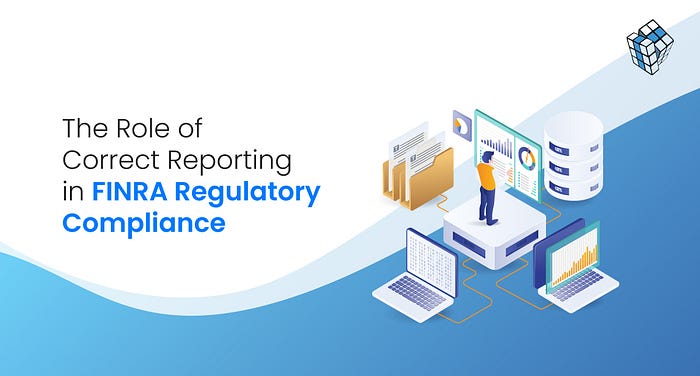The Role of Correct Reporting in FINRA Regulatory Compliance: RSMS as a Game-Changer

In the complex world of financial regulation, accurate and timely reporting isn’t just a best practice — it’s a regulatory necessity. The Financial Industry Regulatory Authority (FINRA) enforces strict compliance standards to ensure market integrity, protect investors, and maintain fair trading environments. Among these requirements, correct reporting of trade and account information plays a pivotal role. For firms seeking to stay compliant, the process can be challenging — unless they leverage the right tools.
This is where Regulatory Surveillance and Management System (RSMS) emerges as a game-changer.
Why Accurate Reporting Matters in FINRA Compliance
FINRA mandates broker-dealers to report trading activity, customer account details, and ownership data through systems like CAT (Consolidated Audit Trail) and CAIS (Customer and Account Information System). These systems enable regulators to detect market manipulation, insider trading, and other compliance violations.
Consequences of Inaccurate Reporting:
- Regulatory Fines & Penalties: FINRA actively enforces rules with significant monetary fines for firms that submit incomplete or inaccurate reports.
- Reputational Risk: Non-compliance can erode client trust and damage a firm’s brand.
- Operational Disruption: Incorrect submissions often result in audit queries, resubmissions, and internal investigations — slowing down business processes.
In short, getting it right matters. But with evolving rules, tight deadlines, and vast volumes of data, it’s easier said than done.
RSMS: Revolutionizing Regulatory Reporting
RSMS (Regulatory Surveillance and Management System) is designed specifically to simplify, automate, and optimize the compliance process. It acts as a centralized platform that bridges the gap between operations, compliance teams, and regulators.
Key Benefits of RSMS:
1. Data Accuracy and Validation
RSMS ensures that trade and account data is validated against FINRA’s requirements before submission. This reduces the risk of errors and improves first-pass success rates.
2. Automated Reporting for CAT & CAIS
The platform automates the generation and submission of CAT and CAIS reports, saving time and minimizing manual intervention. It supports versioning, resubmission, and real-time feedback integration.
3. Comprehensive Error Management
RSMS provides a clear audit trail of errors, warnings, and corrections. Its built-in analytics help identify recurring issues, enabling firms to proactively correct upstream processes.
4. Audit Readiness
All actions within RSMS are logged and reportable, making it easier for compliance teams to prepare for FINRA audits and inquiries.
5. Custom Dashboards & Alerts
RSMS offers intuitive dashboards that allow users to monitor reporting status, compliance health, and deadlines — all in real time.
A Strategic Advantage, Not Just a Compliance Tool
In an industry where agility, transparency, and accountability are paramount, RSMS is more than a reporting platform — it’s a strategic compliance partner.
By ensuring correct reporting across all FINRA-mandated frameworks, RSMS allows firms to:
- Focus on growth and customer service instead of compliance firefighting
- Reduce the risk of regulatory action
- Build a culture of proactive, data-driven compliance
- https://capmarketsolutions.com/
Conclusion
Correct reporting is the cornerstone of FINRA regulatory compliance. In a regulatory environment that is increasingly data-intensive and unforgiving of errors, firms must adopt tools that enhance accuracy, efficiency, and transparency.
RSMS stands out as a transformative solution, empowering broker-dealers to not just meet regulatory obligations but to turn compliance into a competitive edge.
Comments
Post a Comment